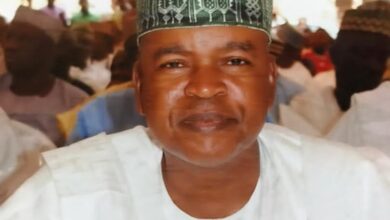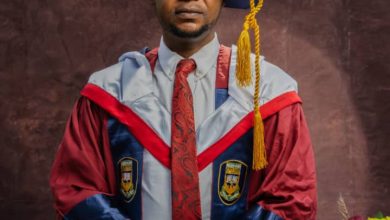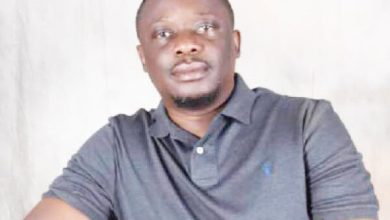
Taiye Oniyide was called to the bar 1st July, 2003 and he is a fellow of the chartered institute of Arbitrators United Kingdom. He recently completed his Ph.D in Alternative Dispute Resolution and has spent his over eighteen years of practice in the law firm of former NBA president, Chief Bayo Ojo (SAN) and Co. in Ilorin. In this interview with ACTING EDITOR, MUMINI ABDULKAREEM, he talks about law reforms and other sundry issues of interest. Excerpts:
What do you make of the aftermath of the NBA election and the development that has trailed it?
The NBA is going through what I will call a necessary phase but not a difficult one for several reasons. As a body that is made up of several members and several aspects, it is not possible to have two persons to come together and agree on a thing without having disagreement let alone thousands of members and multiple sub divisions that made up the NBA. People are bound to have their various ideas and ideologies. But that these ideologies defer can’t be termed as going through a difficult face because it’s necessary. What is important is how we handle it. Forming a new NBA is not the solution to the issue on ground or are we saying that such NBA will not have divergent views subsequently sooner or later. Does that mean we have to keep forming new NBAs? These issues are more or less a moral one. What is best is to undertake a good assessment and harmonise our positions. Those who are angry or feel embittered have a reason to do so. The NBA is among the bodies that set the standards as far as Nigeria is concerned and the world will be watching what is going on. I hope and pray that we set the best of all standards for ourselves and harmonise our differences to come out better than before. The new administration has set up a body to look at these issues; let’s hope something tangible will come out of it. That a SAN is now the president should not be an issue and it does mean it will happen in the next ten generations, it means NBA has spoken but you can’t determine a generation by another one. Things are changing, the world is moving and a lot of things are happening. Olumide Akpata will best be accessed by what happened at the end of the day, not because he has entered that office. If a non SAN will cease to become the President of NBA in Nigeria, we will know that by what will happen during his tenure. We have seen what SANs have done, lets us see what a non SAN will do. Now the letter of the leaned silk, Chief Awomolo went a long way to open the eyes of non SAN because there have been issues prior to this time about the process and who become a NBA president and people have agitated that the process is not transparent and they see that there are some sort of unseen division between SAN and non SAN. Both sides are however to be blamed. Maybe because there are certain roles that SANs have to play to juniors that they are not doing and the society at large is not helping matters because you don’t get certain briefs unless SAN is attached to your name even if you are not worth the mental capacity. I want to believe that nothing happens in the physical that God does not allow and perhaps the letter of Awomolo was one of the things that needed to be for God to set the throne for Mr Akpata this time around.
How do you see the issue of Malami and Magu, is it two fighting or corruption truly fighting back as some have alleged?
It is none of both, but it is what is also needed. There is no power tussle anywhere, particularly when you talk about offices they both occupy; their roles are defined by statute. There is no way one can best answer this question without going back to the basis of this regime with one of its core mandates to fight corruption. That was also the main reason why Ibrahim Magu was brought in to chair EFCC with the presumption then that he was an incorruptible person. To the extent that Magu has been accused and now standing some sort of trial is a commendation for this regime and a statement but of course they also have their weakness severally. The current procedure is ongoing and it will be difficult for one to conclude anything now. A panel has been set up to investigate the allegations against Magu, it is at the end of the findings that we will know depending on the findings of the panel whether to go ahead and prosecute him or not.
What is your take on the modus operandi of EFCC as regards its prosecutions, particularly with the way it handled the case of the former Senate President, Dr Bukola Saraki where the EFCC re-filed a case that had already been decided at the Supreme Court after passing the Code of Conduct Tribunal at another court?
EFCC, as presently constituted, has its limitations and flaws. I will not ordinarily expect that anybody or organisation will be perfect. So the EFCC in clear words have had its wrong doings and limitations and they violated the same laws that they swore to protect and the case of the former Senate President is one of such. There are several others that have not even gone into public view and this is because people who manned the affairs or have the privilege of power sometimes forget that power is transient and it will come and go. Power corrupt and absolute power corrupt absolutely and the EFCC is not an exception. The law is certain and you will see that on the issue of the former Senate President, opinions are divided. Those who are supporting him and many who have been very objective have seen this same procedure as wrong. But the EFCC appears to have had the mind set to nail the man (Saraki) at all cost which is the perception that their action or inaction gave the public and you cannot blame those who have such mindset. I also felt a little reserved with respect to that line of action by the EFCC. Except you have a new issue, once an issue has been decided by the court, that should be the end of the matter, it should not arise again, the EFCC has some limitations in bringing the same issue. The good thing, if you observe is that it was the same court that rose and say no to the action of EFCC and that is the beauty of democracy and the saying that the Judiciary is the last hope of the common man came to the fore in the light of the EFCC and Saraki’s case. I don’t agree with that process and that is one of the allegation that is ongoing against Magu where several persons have come to testify how they were personally victimised.
What is your take on the agitation for unbundling of the office of the AG and Commissioner for Justice to have separate offices?
It depends on the person manning both offices. But because I am a lawyer, I like to see the Attorney General, whether state or federal in wig and gown come to court and show lawyers and the public that he is worth the position and can stand before the judge to talk. That will help younger lawyers because it has its role as far as the society is concerned. Also, I like to see the Commissioner for Justice perform his role. In this regards, I will like to see the offices separated. It will help to reduce roles for them to be more effective. The attorney general will face the law while the commissioner will face political issue.
Is the country safe on the issue of P&ID or there are trouble ahead for the country?
The judgment we got was a temporary and major relief but it is very unfortunate that we found ourselves in this situation where we woke up almost too late. All the issues that arose in the P&ID case could have been addressed much earlier, somebody was just negligent if you ask me which is the common nature of the average Nigerian. But the UK judgment in favour of Nigeria is a good step in the right direction because either way, if the execution is levied on Nigeria’s property abroad, there is no way it will not affect every one of us. But I think we should adopt a carrot and stick approach, the issue is not solely on the basis of legal battle. The fact that Nigeria has this temporary relief does not mean it cannot still go against us. So now, the country should reach out to the other side and find a way to compromise the issue, we can’t still call it a win win situation yet.





